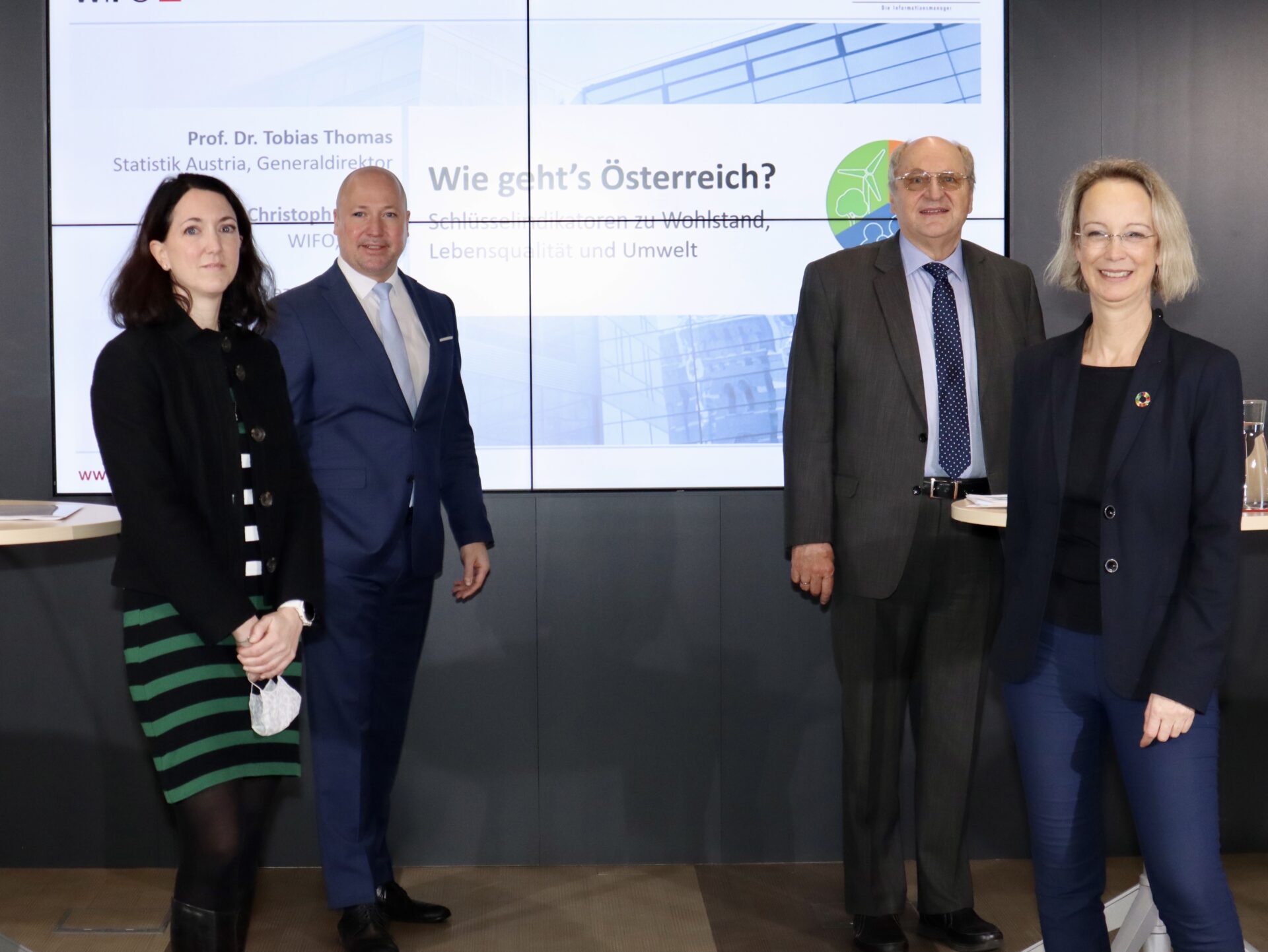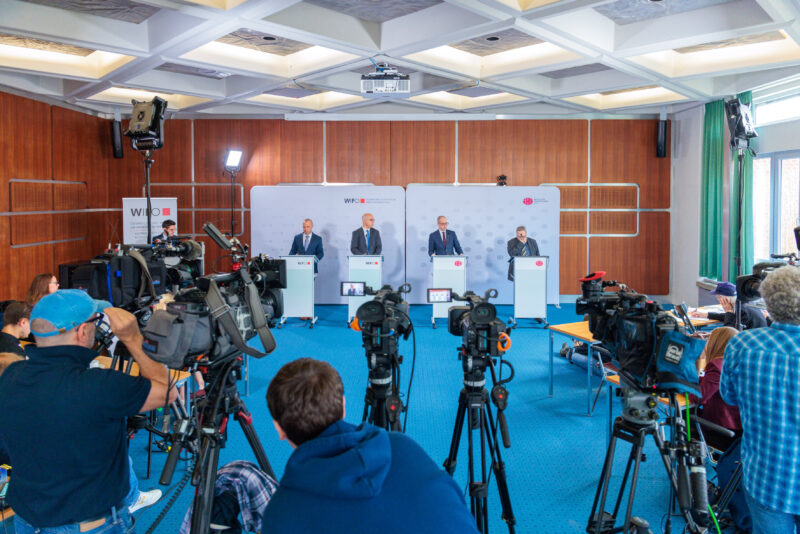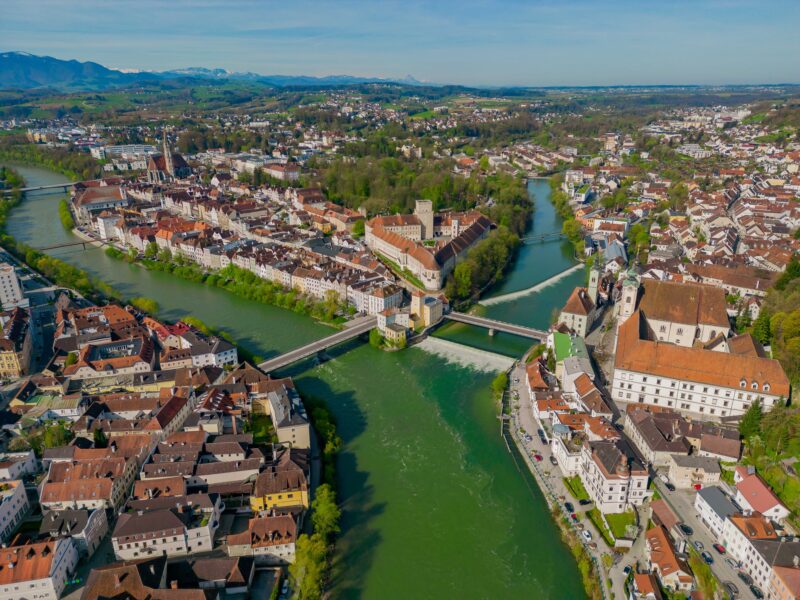
"How's Austria?"
The majority of the material wealth indicators have been assessed very positively or positively for the last three years: in 2019, for example, gross domestic product (+1.0 percent per capita, real), income (+1.0 percent per capita, real) and consumption (+0.7 percent per capita, real) increased, as did the employment rate, which rose from 76.2 percent to 76.8 percent. In the area of quality of life, there is no negative assessment in the short term. Subjective life satisfaction remained at a very high level, and the proportion of people at risk of poverty or social exclusion was low and has fallen further in comparison with other EU countries. The panel of experts assessed the environmental indicators much more heterogeneously and critically. The high resource and energy consumption and rising greenhouse gas emissions (2019 +1.8 percent, preliminary data) are considered problematic. Two bright spots regarding the environment are the increase in organically farmed agricultural land (indicator is developing very positively) and the decrease in exposure to fine dust (indicator is developing positively).
Based on the observation of the year 2019, the report also offers a first outlook on the consequences of the Corona crisis, which will have a negative effect on the indicators in the areas of material wealth and quality of life and a positive effect on at least some of the environmental indicators.
"The corona crisis has hit Austria hard with health consequences, the largest economic downturn since World War II and massive restrictions on social life. At the same time, Austria was in an excellent position to face the crisis in terms of prosperity and quality of life. Apart from containing the pandemic and coping with the economic and social consequences, however, there are other challenges that Austria had to face already before the crisis, such as the sustainable protection of climate and environment as well as the effects of demographic change on the social security systems," said Director General of Statistics Austria Tobias Thomas.
"Although the gross domestic product has the advantage of being very condensed and internationally standardised, it only ever tells part of the story. The broader we measure the economic, social and ecological state of our society, the better. As a member of the panel of experts, I would therefore like to emphasise the successful integrative and holistic approach of the study series," says WIFO Director Christoph Badelt.
For more detailed information please refer to the German version.
A video recording of the press conference is available here (in German).
























